On this day on 31st August
On this day in 1870 Maria Montessori was born in Italy. After graduating from medical school in 1896 Montessori became the first woman in Italy to become a doctor.
Montessori returned to university in 1901 to study psychology and philosophy. Three years later she became professor of anthropology at the University of Rome.
In 1906 Montessori left the university in order to work with sixty young working class children in the San Lorenzo district of Rome. Soon afterwards she founded the Casa dei Bambini (Children's House) where she developed what became known as the Montessori method of education. This method of teaching was based on spontaneity of expression and freedom from restraint.
In 1913 Montessori went to the United States where with the help of Alexander G. Bell founded the Montessori Educational Association in Washington. She also joined with Alice Paul, Lucy Burns, Mabel Vernon, Olympia Brown, Mary Ritter Beard, Belle LaFollette, Helen Keller, Dorothy Day and Crystal Eastman to form the Congressional Union for Women Suffrage (CUWS).
Montessori established a research institute in Spain and in 1919 she began a series of teacher training courses in London. In 1922 she was appointed a government inspector of schools in Italy.
An opponent of Benito Mussolini, Montessori was forced to leave Italy in 1934. She moved to Spain until General Francisco Franco and his nationalist forces defeated the republicans in the Spanish Civil War.
Montessori established training centres in the Netherlands (1938), India (1939) and England (1947). Maria Montessori, who was nominated for the Nobel Peace Prize in 1949, 1950 and 1951, died in Noordwijk, Holland, on 6th May, 1952.
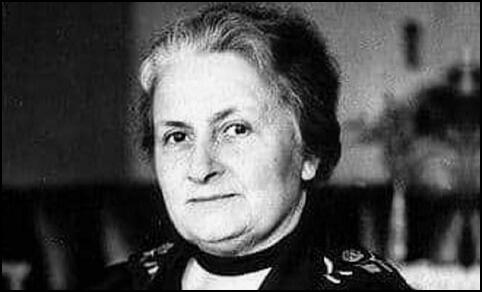
On this day in 1916 Daniel Schorr was born in New York City. His parents were Jewish immigrants, Tillie and Gedaliah Tchornemoretz, from what is now Belarus. After attending the College of the City of New York he contributed articles to the Jewish Daily Bulletin and the New York Journal American.
Schorr served in the United States Intelligence during the Second World War (1943-45). In 1946 he joined the Christian Science Monitor. Later he moved to the The New York Times. Schorr worked as a foreign correspondent and reported on the Marshall Plan, and the creation of the NATO alliance.
In 1953, Schorr was recruited by Ed Murrow to work for CBS News as its diplomatic correspondent in Washington. This included an investigation into the claims being made by Senator Joseph McCarthy. In 1955 he opened a CBS bureau in Moscow. Two years later Schorr carried out the first ever television interview with Nikita Khrushchev. Later that year Schorr was arrested by the police and deported from the Soviet Union.
Schorr returned to Washington and traveled with President Dwight Eisenhower to South America, Asia, and Europe. In 1959 he interviewed Fidel Castro in Havana. In 1960, Schorr was assigned to Bonn as CBS bureau chief for Germany and Eastern Europe. He covered the Berlin crisis and the building of the Berlin Wall and reported events from all the Warsaw Pact countries. In 1964 Schorr was nearly sacked after reporting that Barry Goldwater was linked with a group of German right-wing military men.
Schorr returned to the United States in 1966 and reported on domestic issues. This included the presidencies of Lyndon Johnson and Richard Nixon and the civil rights movement. According to Godfrey Hodgson: "In 1966... Schorr went to Washington. There he annoyed Nixon, Johnson's successor from 1969, by his critical reporting. Schorr was an unapologetic liberal. In 1970, he made a celebrated documentary for CBS Reports about healthcare called Don't Get Sick in America, published as a book in the same year."
In 1972 Schorr began working full-time on the Watergate Scandal. Schorr's reports on the Senate Watergate hearings earned him three Emmys. In June 1973, Bill Paley made attempts to censor Schorr's criticism of Richard Nixon. It was later discovered that Schorr had been added to Nixon's "enemies list" and as a result was investigated by the FBI.
As a result of the Watergate Scandal, on 9th August, 1974, Richard M. Nixon became the first president of the United States to resign from office. The new president, Gerald Ford, nominated Nelson Rockefeller as his vice president. During his confirmation hearings it was revealed that over the years he had made large gifts of money to government officials such as Henry Kissinger.
Later that year, Seymour Hersh of the New York Times, published a series of articles claiming that the Central Intelligence Agency had been guilty of illegal activities. In his memoirs, Ford said that he feared a congressional investigation would result in "unnecessary disclosures" that could "cripple" the CIA. He and his aides quickly decided that he needed to prevent an independent congressional investigation. He therefore appointed Rockefeller to head his own investigation into these allegations.
Other members of the Rockefeller Commission included C. Douglas Dillon, Ronald Reagan, John T. Connor, Edgar F. Shannon, Lyman L. Lemmitzer, and Erwin N. Griswold. Executive Director of the task-force was David W. Belin, the former counsel to the Warren Commission and leading supporter of the magic bullet theory. In 1973 Berlin had published his book, November 22, 1963: You are the Jury, in which he defended the Warren Report as an historic, "unshakeable" document.
In her book, Challenging the Secret Government: The Post-Watergate Investigations of the CIA and FBI, Kathryn S. Olmsted, wrote: "His choice for chairman, Vice President Nelson Rockefeller, had served as a member of the President's Foreign Intelligence Advisory Board, which monitored the CIA. Members Erwin Griswold, Lane Kirkland, Douglas Dillon, and Ronald Reagan had all been privy to CIA secrets in the past or noted for their strong support of governmental secrecy."
The journalist, Joseph Kraft, argued that he feared that the Rockefeller report would not end "the terrible doubts which continue to eat away at the nation." This was reflected in public opinion polls taken at the time. Only 33% had confidence in the Rockefeller Commission and 43% believed that the commission would turn into "another cover-up".
At a meeting with some senior figures at the New York Times, including Arthur O. Sulzberger and A. M. Rosenthal, President Gerald Ford let slip the information that the CIA had been involved in conspiracies to assassinate political leaders. He immediately told them that this information was off the record. This story was leaked to Daniel Schorr who reported the story on CBS News. As Schorr argued in his autobiography, Staying Tuned: A Life in Journalism: " President Ford moved swiftly to head off a searching congressional investigation by extending the term of the Rockefeller commission and adding the assassination issue to its agenda."
Rockefeller's report was published in 1975. It included information on some CIA abuses. As David Corn pointed out in Blond Ghost: Ted Shackley and the CIA Crusades: "the President's panel revealed that the CIA had tested LSD on unsuspecting subjects, spied on American dissidents, physically abused a defector, burgled and bugged without court orders, intercepted mail illegally, and engaged in plainly unlawful conduct". The report also produced details about MKULTRA, a CIA mind control project.
In July, 1975, Fletcher Prouty told Daniel Schorr that Alexander P. Butterfield had been the CIA's spy in the White House. Butterfield denied this claim and threatened to sue the two men for libel. Time Magazine reported: "Despite his impressive record, Schorr gets into trouble because he is often too eager and cuts corners. He has been known to behave like an anxious rookie out to impress by elbowing others aside and pushing hard. Just before the Watergate cover-up indictments, for example, he went on-camera to predict that the grand jury would name more than 40 people. Seven names came down. At CBS, Washington Correspondent Leslie Stahl cordially detests him because, she tells friends, he hogged her Watergate stories."
In February of 1976, the House of Representatives, voted to suppress the final report of its intelligence investigating committee. Schorr, who had been given an advance copy, leaked the information to Village Voice. This led to his suspension by CBS and an investigation by the House Ethics Committee in which Schorr was threatened with jail for contempt of Congress if he did not disclose his source. Schorr refused and eventually the committee decided 6 to 5 against a contempt citation.
Schorr left CBS and wrote an account of this Watergate story called Clearing the Air. In 1977 he was Regents Professor of Journalism at the University of California at Berkeley and for three years wrote for the Des Moines Register-Tribune Syndicate.
In 1979, Daniel Schorr was asked by Ted Turner to help create the Cable News Network. Schorr wrote his own contract, which specified that he should not be asked to do anything that contradicted his sense of ethical journalism. He serving in Washington as its senior correspondent until 1985, when he left in a dispute over an effort to limit his editorial independence.
Schorr found work at National Public Radio, contributing regularly to All Things Considered, Weekend Edition Saturday, and Weekend Edition Sunday. He told USA Today: "I have breathed the breath of freedom. Nobody ever told me here what not to do."
In 1996, Schorr received the Columbia University Golden Baton for "Exceptional Contributions to Radio and Television Reporting and Commentary." An award that is considered the equivalent of the Pulitzer Prize. Schorr has also been inducted into the Hall of Fame of the Society of Professional Journalists and in 2002, Schorr was elected to the American Academy of Arts and Sciences.
Schorr published his autobiography, Staying Tuned: A Life in Journalism, in 2001. He also wrote a regular column for the Christian Science Monitor. His final two books were The Idea of a Free Press (2006) and Come to Think of It: Notes on the End of the Millennium (2007).
Daniel Schorr died on 23rd July, 2010.
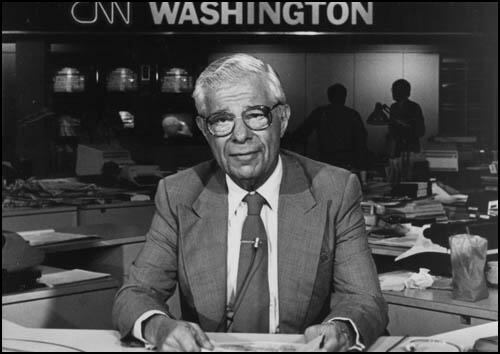
On this day in 1921 Raymond Williams was born in Wales. Educated at Abergavenny Grammar School and Trinity College, Cambridge, his studies were interrupted by the Second World War. He joined the British Army and saw service as an anti-tank captain.
After the war he worked in adult education before becoming a lecturer at Cambridge University. A socialist, in the 1950s he joined forces with E. P. Thompson, Raphael Samuel, Ralph Miliband, Stuart Hall and John Saville to launch two radical journals, The New Reasoner and the New Left Review.
Williams wrote extensively about the history of culture. Books by Williams include Culture and Society 1780-1960 (1958), The Long Revolution (1961), Keywords (1976), Communications (1962), Second Generation (1964), Orwell (1971), The Country and the City (1973), Television: Technology and Cultural Form (1974), Marxism and Literature(1977), The Volunteers (1978), Problems in Materialism and Culture (1980), Culture (1981), Writings in Society (1983) and Loyalties (1985).
Raymond Williams died on 26th January 1988.
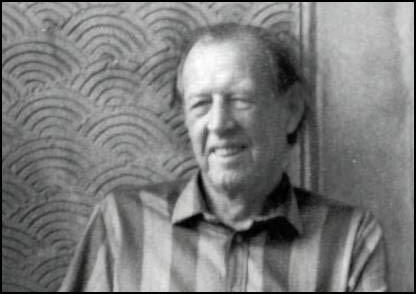
On this day in 1935 Eldridge Cleaver, the son of a nightclub piano player, was born in Wabbaseka, Arkansas, in 1935. The family later moved to Los Angeles. As a teenager he was sent to reform school for stealing a bicycle and selling marijuana.
Soon after his release he was arrested for possession of marijuana. Found guilty he was sentenced to 30 months in Soledad Prison. While in prison Cleaver became interested in politics and read the works of Karl Marx, Tom Paine, William Du Bois and Lenin.
Cleaver was released in 1957 but the following year he was arrested and charged with attempted murder. Found guilty, he was sentenced to a term of two to fourteen years in prison. While in San Quentin he began reading books on black civil rights and was particularly influenced by the writings of Malcolm X.
After leaving prison in 1966 Cleaver joined the Black Panther Party (BPP). Soon afterwards he was appointed the organization's minister of information. Cleaver was now a committed revolutionary and called for an armed insurrection and the establishment of a black socialist government.
Cleaver married Kathleen Neal on 27th December, 1967. The following year he published his memoirs, Soul on Ice (1968), established him as one of African American's the most important political figures.
The activities of the Black Panthers came to the attention of J. Edgar Hoover and the FBI. Hoover described the Panthers as "the greatest threat to the internal security of the country" and ordered the FBI to employ "hard-hitting counter-intelligence measures to cripple the Black Panthers".
On 6th April, 1968 eight BPP members, including Cleaver, Bobby Hutton and David Hilliard, were travelling in two cars when they were ambushed by the Oakland police. Cleaver and Hutton ran for cover and found themselves in a basement surrounded by police. The building was fired upon for over an hour. When a tear-gas canister was thrown into the basement the two men decided to surrender. Cleaver was wounded in the leg and so Hutton said he would go first. When he left the building with his hands in the air he was shot twelve times by the police and was killed instantly.
Cleaver was arrested and charged with attempted murder. He was given bail and in November, 1968, he fled to Mexico. Later he moved to Cuba. He also spent time in Algeria.
While in exile Cleaver had disagreements with Huey Newton and in 1971 he expelled him from the Black Panther Party. Soon afterwards Cleaver formed the Revolutionary Peole's Communication Network and Kathleen Cleaver returned to the United States to establish the party in New York.
Soon afterwards Cleaver underwent a mystical conversion to Christianity. He now rejected his former political beliefs describing the system in Cuba as "voodoosocialism". He also wrote an article for the New York Times where he argued "With all its faults, the American political system is the freest and most democratic in the world."
Cleaver returned to the United States in 1975. Tried for his role in the 1968 shoot-out, Cleaver was found guilty of assault. The court was lenient and Cleaver, now a born-again Christian, received only five year's probation and directed to perform 2,000 hours of community service. David Hilliard, on the other hand, charged with the same offence, had received a one to ten year prison term.
After his trial he ran the Cleaver Crusade for Christ. Later, he came up with a plan for "Christlam," a plan to combine Christianity and Islam. He published Soul on Ice (1978) and for a time he advocated the religious ideas of Sun Myung Moon and became involved with Mormonism. During the 1980s he became a supporter of Ronald Reagan.
Cleaver, who for a time worked as a tree surgeon, divorced his wife, Kathleen Cleaver, in 1985. He continued to struggle with drug problems and in 1994 was seriously injured when he was knocked unconscious while buying cocaine from a drug dealer.
On his release from hospital he worked for the Black Chamber of Commerce in San Francisco . He also taught at a Bible college in Miami. However, in 1998 he was placed on probation in 1998 after convictions for burglary and cocaine possession.
Eldridge Cleaver died at Pomona Valley Medical Center on 1st May, 1998. His family requested that the hospital did not reveal the cause of his death.
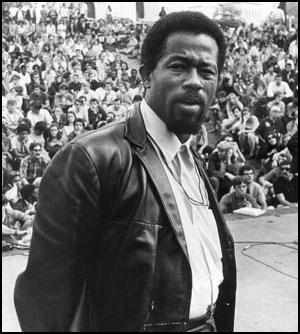
On this day in 1967 Ilya Ehrenburg died of prostate and bladder cancer. He was interred in Novodevichy Cemetery in Moscow. The gravestone includes a reproduction of his portrait drawn by his friend Pablo Picasso.
Ilya Ehrenburg was born in Russia on 27th January 1891. As a young man he became a follower of Lenin. He went into exile where he became a poet. After the successful Bolshevik Revolution in 1917, Ehrenburg returned to Russia.
Ehrenburg was a member of the Jewish Anti-Fascist Committee. He also worked for Izvestia and between 1936 and 1939 reported on the Spanish Civil War. As well as writing for the newspaper he also collected information on the Popular Front government for the NKVD.
After the war he edited The Black Book that was made up accounts by Jewish survivors of the Holocaust in the Soviet Union and Poland.
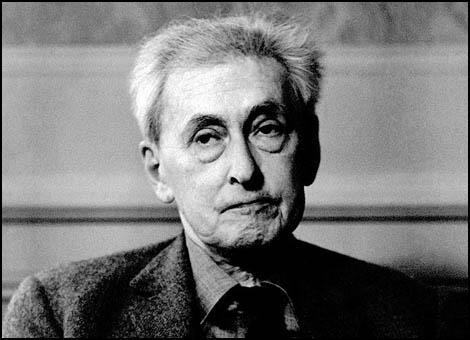
xx

